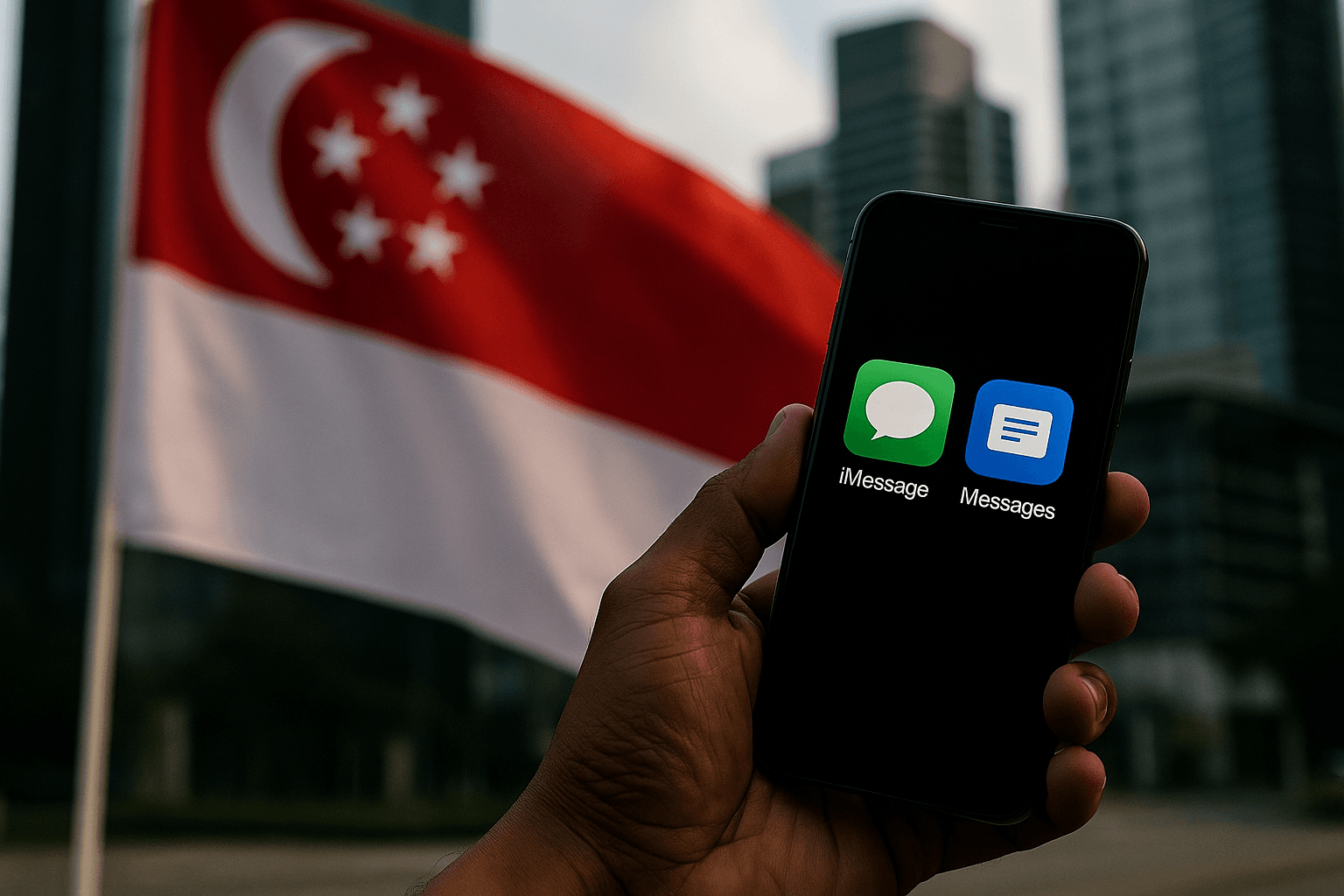Singapore Orders Apple, Google to Curb Government Impersonation on Messaging
Singapore’s police and Ministry of Home Affairs issued Implementation Directives to Apple and Google requiring technical steps to stop spoofing of government identifiers on iMessage and Google Messages, citing widespread impersonation scams that have led to large financial losses. The move forces major platform changes with a near term compliance deadline and the prospect of fines, a measure that could reshape how messaging services verify sender identity and protect users.

Singapore’s Ministry of Home Affairs and police issued Implementation Directives on November 24 and 25 under the Online Criminal Harms Act, ordering Apple and Google to block or filter accounts and group chats that display names spoofing gov.sg or other government agency identifiers on iMessage and Google Messages. Authorities also demanded that unknown senders’ phone numbers be shown more prominently than user supplied display names, a step aimed at making impersonation harder to execute and easier for recipients to detect.
The directives set a near term compliance deadline and warned that companies that fail to comply could face fines. Both Apple and Google indicated they will implement the prescribed changes, signaling cooperation with Singaporean regulators as the city state moves to clamp down on a wave of scams in which fraudsters pose as government officials to extort victims or trick them into transferring funds. Officials framed the action as part of a broader effort to reduce impersonation scams that have inflicted substantial financial losses across the country.
The orders raise immediate technical and operational questions for the two companies. On Apple’s platform, iMessage operates in a largely closed ecosystem where the company controls the client software, and changes to how sender information is displayed can be pushed directly to users. Google Messages, which supports Rich Communication Services and interoperates with carrier networks and multiple Android clients, is more distributed, and implementation may require coordination with carriers and handset makers. Showing phone numbers more prominently than display names is a user interface change that could reduce the effectiveness of simple display name spoofing, but it does not eliminate more sophisticated methods of impersonation that exploit account creation, SIM swapping, or network level vulnerabilities.

Privacy and false positive risks are part of the tradeoffs regulators and platforms will have to manage. Measures that block or filter accounts risk unintentionally intercepting legitimate group chats and official notifications that use similar identifiers. At the same time, stronger verification and filtering can raise privacy questions if they require deeper checks on account ownership or metadata. Singaporean authorities framed the directives as focused narrowly on known government identifiers, but how broadly filters are applied and how appeals are handled will determine whether ordinary communication is disrupted.
This enforcement action underscores a broader trend in which national regulators are pressing technology companies to take on greater responsibility for the integrity of their communication services. By using statutory authority under the Online Criminal Harms Act, Singapore has set a clear compliance line for two of the largest global messaging platforms. The outcomes in the coming weeks will demonstrate whether technical changes can materially reduce impersonation scams without creating new harms, and whether other governments will follow Singapore’s approach in seeking direct operational controls over private messaging systems.


